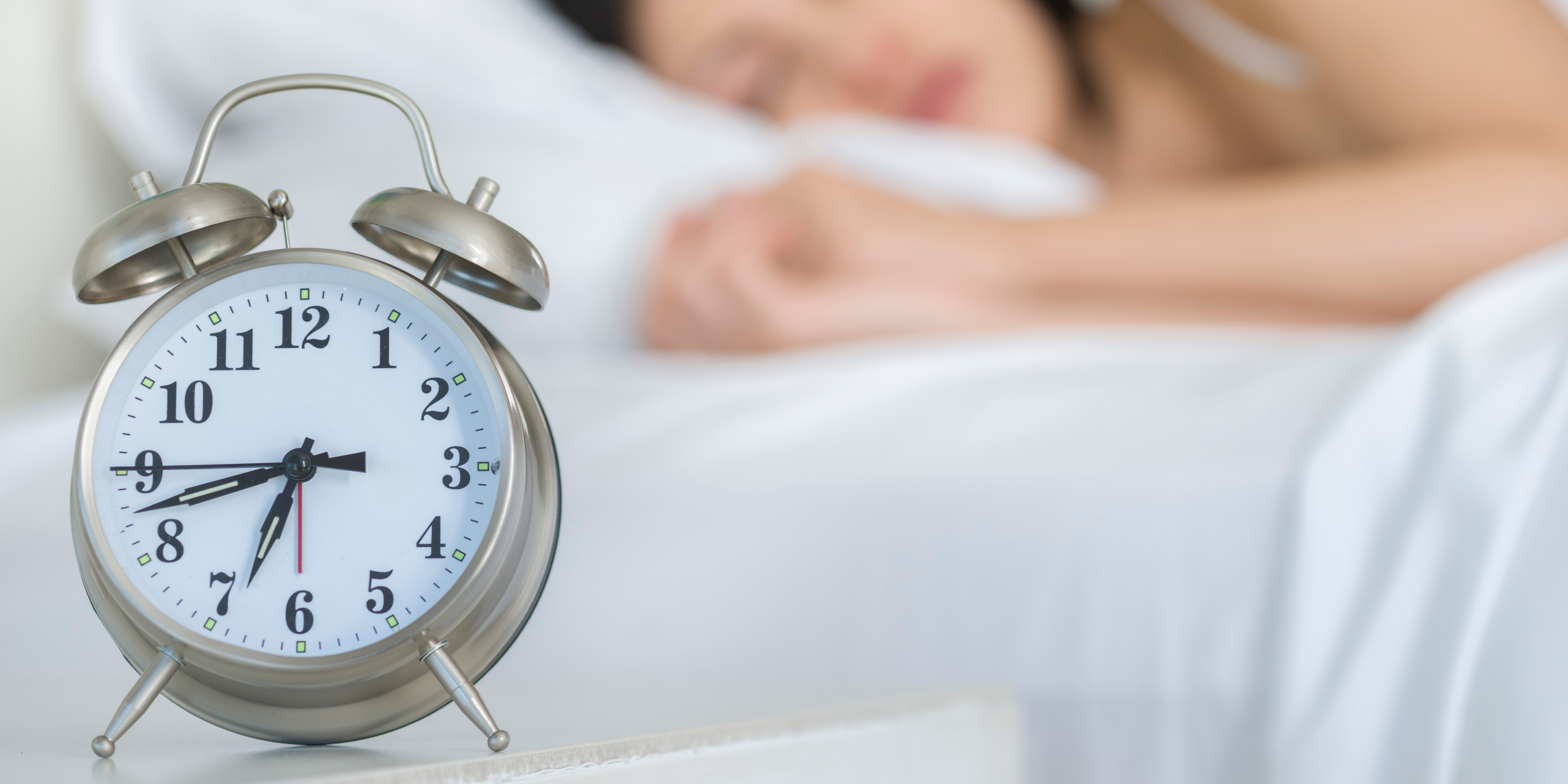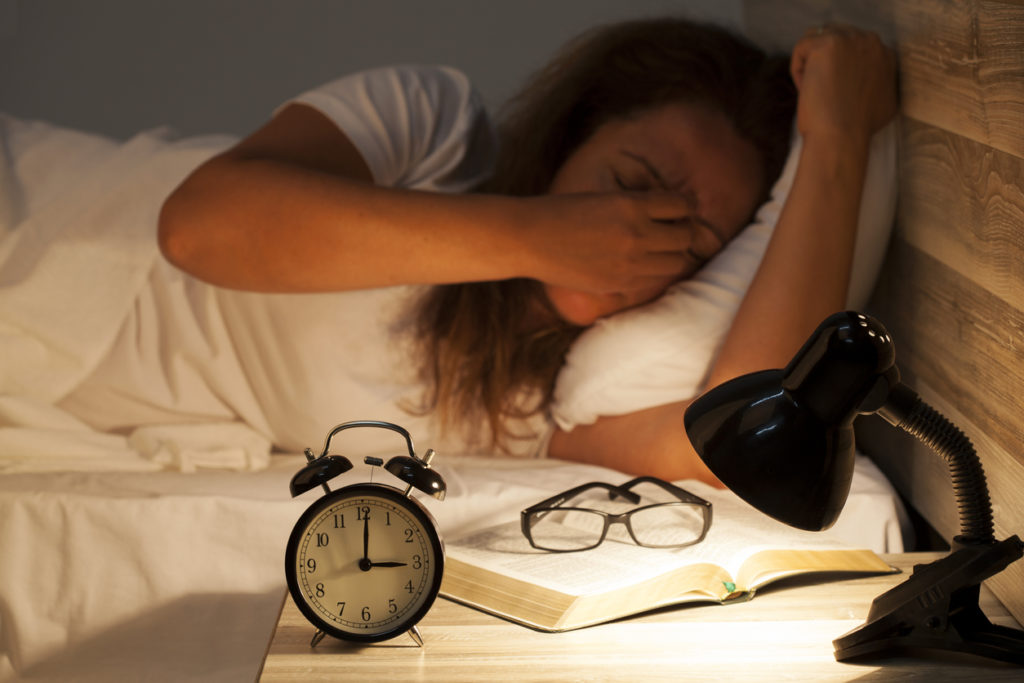
Getting a good nights sleep is an important part of getting through the daily grind, yet nearly 50% of Australian adults experience two or more sleep-related problems, including difficulty falling asleep, staying asleep and daytime sleepiness.
Ongoing sleep disturbances can lead to bigger issues including, emotional difficulties, brain fog, poor job performance and even accidents or injury.
Insomnia & Risk of Chronic Disease
Left untreated, long-standing insomnia is associated with many chronic diseases including;
- diabetes
- cardiovascular disease
- obesity
- and mood disorders
The good news is, catching more z’s may be as simple as changing your habits. For many people, bad habits in the lead-up to bedtime, also known as poor sleep hygiene, are a major contributor to a restless night. Read on to find out if a sleep hygiene overhaul may help you secure a blissful date with your pillow and a solid night’s sleep.
MODERN LIFE PREDISPOSES US TO POOR SLEEP HYGIENE
A busy social calendar may keep you out late, high stress at work can cause sleepless worry, and a burning desire to stay up late watching your favourite reality TV show or squeezing in just one more episode of Netflix may keep you on the couch into the early hours of the morning. An occasional blowout is okay, but when these pastimes become regular patterns, it becomes harder to cement a consistent sleep schedule, making it difficult to sleep well.
If you spend every night struggling to sleep, you probably already know that your sleep habits need attention. However, if your issue is more subtle, or less frequent, you may be wondering whether it’s worth taking action. Using the checklist below may help you decide.
Regularly experiencing one or more of the following may be a sign of a disrupted sleeping pattern:
It takes over 30 minutes to fall asleep after getting into bed.
You wake up more than once per night.
You awaken for over 20 minutes during the night.
You spend less than 85% of your time spent in bed asleep.
You wake most mornings feeling unrefreshed.
You rely on caffeinated beverages to get you through the day.
Adapted from the National Sleep Foundation

When Counting Sheep Doesn’t Work, Try This
If you are fed up with moving through life sleep deprived and fatigued, these simple tweaks to your sleep hygiene may help you shake off sleepless misery. Incorporate the following habits to help you fall asleep faster, sleep soundly through the night, and wake feeling refreshed and rested:
- Establish a sleep routine, which will help condition your body to feel sleepy at a regular time. This may be difficult initially, particularly if you don’t feel tired at the same time each night. However, you can help your body synchronise to a consistent schedule by going to bed at roughly the same time each night and waking at the same time each morning.
- Steer clear of electronic devices for at least 30 minutes before sleep and avoid using these in bed. Night-time exposure to blue light from digital screens is stimulating and can interfere with your brain’s production of melatonin, the hormone responsible for making you feel sleepy.
- Do not use your bed as an activity centre. Your bed is for sleeping and sexual activity only. Avoid other pursuits, such as watching TV or working from bed, to train your brain to associate bed with sleep.
- Avoid stimulants such as caffeine and cigarettes, which can keep you awake or disrupt your sleep during the night.
- Ditch the alcohol. Many people use alcohol to help them fall asleep faster. However, drinking alcohol inhibits restorative sleep and increases the likelihood that you will feel groggy the next morning.
- Create a pre-sleep ritual. Relaxing activities can help you unwind before hitting the sack and gradually transition your body from a wakeful state into a state of sleep. Your ritual may include stretches, breathing exercises, a hot bath, or sipping on a cup of caffeine-free tea.
- Go to bed when you feel sleepy. While this may seem like a no-brainer, climbing into bed when you feel alert can create a negative association between being in bed and struggling to sleep, making it harder for you to relax.
- Get up. If you do not fall asleep within 20 minutes of lying down, get out of bed and perform a mundane activity until you feel sleepy enough to return to bed. There is nothing like a spot of ironing to bore you to sleep. Boredom is key; avoid activities that may stimulate you, such as watching TV, and avoid the use of bright lights, which suppress melatonin production.

A QUICK HERBAL FIX IN THE INTERIM
Changing your habits can take time, particularly if they have been months or years in the making. While you make changes, sleep-supporting herbs can fast track your journey to a better night of restorative sleep.
Remedies such as California poppy, passionflower, zizyphus, Jamaican dogwood, and lavender can enable you to fall asleep faster and sleep more soundly.
These herbs achieve their sleep-inducing effects by stimulating your body’s production of gamma-aminobutyric acid (GABA). A neurotransmitter (chemical messenger) produced by your brain, GABA sends signals among your brain cells that reduce their activity. It also carries signals to other cells in your body, such as your muscles, helping them to relax. GABA is involved in your body’s sleep cycles, with increased levels during the evening reducing stress, promoting calmness and relaxation, and helping ease you into sleep.
As an added bonus, unlike many pharmaceutical sleeping agents, herbal sleep remedies are not addictive and will not make you feel jet-lagged the next day.
To find out if any of these herbs are suitable for you, always check in with a qualified herbalist/naturopath first to avoid interactions with medications and to best prescribe for your individual needs.
References
1 Adams R, Appleton S, Taylor A, McEvoy D, Antic N. Report to the sleep health foundation, 2016 sleep health survey of Australian adults. Adelaide (AU): University of Adelaide, Adelaide Institute for Sleep Health; 2016. p. 55. Report.:2
2 Adams R, Appleton S, Taylor A, McEvoy D, Antic N. Report to the sleep health foundation, 2016 sleep health survey of Australian adults. Adelaide (AU): University of Adelaide, Adelaide Institute for Sleep Health; 2016. p. 55. Report.:2
3 National Sleep Foundation. 5 signs that your sleep quality is poor (and how to fix it) [Internet]. Arlington Virginia: National Sleep Foundation; 2019 [updated 2019; cited 2019 Nov 13]. Available from: https://www.sleepfoundation.org/articles/5-signs-your-sleep-quality-poor-and-how-fix-it.